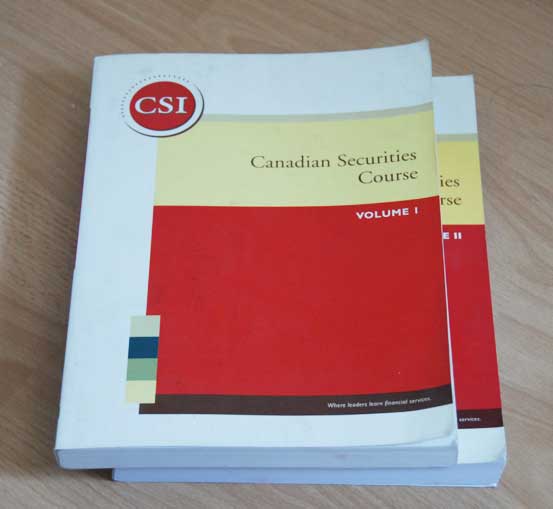Want to learn more about the Canadian securities course? Read on for facts and info on the course that you are required to take in order to get a license to operate in the securities industry in Canada…
Unlike the United States where the Securities and Exchange Commission regulates securities, Canada does not have a central securities commission on the national level. Securities are basically investment instruments issued by corporations, governments, or organizations that can demonstrate evidence of equity. Securities can be classified into three categories: equity securities such as shares in company stock; debt securities such as bonds and banknotes; and derivatives such as futures and options.
The role of the national regulatory agencies is to identify what counts as a security and to keep an eye on irregularities and fraud perpetrated by the issuers as well as attempts at illegal trading or the creation of monopolies on the part of the bearers. Securities themselves may be represented physically by certificates or they may only be in electronic form. Securities are either registered to an individual or they may be bearer certificates that can be more easily traded and transferred just like cash.
Canadian Securities Regulation and the Canadian Securities Course
In Canada, all the provinces and territories are allowed to regulate securities at the regional level. Apart from Quebec, there is some standardization in the securities market in the rest of Canada. For example, the Canadian Securities Course offered by the Canadian Securities Institute is the first course required in order to be able to get licensed and work in the securities industry in all provinces except for Quebec.
The Canadian Securities Course can also fulfill the requirements of the Mutual Funds Dealers Association of Canada (again except in Quebec). Mutual Funds are basically pools of investor money that are managed by an authorized dealer who trades in a mix of bonds, stocks, and other securities on behalf of his or her client.
The course takes one year to complete and there are two examinations to pass. Each exam takes two hours and is composed of a hundred multiple choice questions. The passing grade is sixty percent. The whole online interactive course costs $880 and one attempt at each exam is included in the price of the course.
Topics covered in the first exam are The Canadian Investment Marketplace, The Economy, Features and Types of Fixed-Income Securities, Pricing and Trading of Fixed-Income Securities, Common and Preferred Shares, Equity Transactions, Derivatives, Financing and Listing Securities, and Corporations and their Financial Statements.
The second exam covers the subjects of Fundamental and Technical Analysis, Company Analysis, Portfolio Analysis, Mutual Funds, Segregated Funds, Hedge Funds, Other Managed Products, Canadian Taxation, and Working with the Client.





